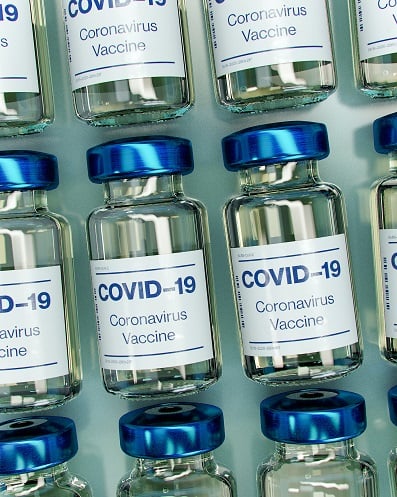RECENT evidence has shown that cancer patients lack seropositivity following a single dose of the Pfizer-BioNTech mRNA COVID-19 vaccine. This urges the need for patients undergoing cancer treatment to be prioritised in the vaccine scheme, as their protection against the virus is delayed, relative to a healthy population. The study carried out by Irit Ben-Aharon of Rambam Health Care Campus, Israel and colleagues aimed to assess the efficacy and safety of the COVID-19 vaccine in cancer patients. Although the vaccinations are currently widely used with minimal side effects, this data is lacking for those undergoing potentially immunocompromising treatment.
The study included 232 patients undergoing treatment for a range of cancers, and 261 age-matched healthy controls. Treatment types included chemotherapy, biologic agents, and immunotherapy, with some patients undergoing combination therapy. Results showed that following the first vaccine dose, only 29% of patients with cancer were seropositive, compared to 84% of controls. Following the second vaccine dose, 86% of cancer patients were seropositive. Within the seronegative group, 29% of patients were suffering with breast cancer, 74% of which were undergoing different types of chemotherapy. Ben-Aharon and colleagues went on to explain that “lympho-suppressive agents may induce a lack of effective seroconversion,” hindering effective antibody production.
Although no uncommon physical side effects occurred, 24 patients experienced elevated liver enzyme levels (1.5 times from baseline) for a period of up to 6 weeks following the first vaccine dose. Regional lymphadenopathy was also observed in CT and PET scans over a 6-week period. Ben-Aharon and colleagues explained this observation: “It has previously been shown in vaccination studies of other viruses that temporary redistribution of lymphocytes from the systemic circulation to lymphoid tissues may be induced by immune stimulation produced by the vaccine.”
The study concluded that if a shortage of vaccines were to occur, the prospect of some individuals forgoing at second vaccine “warrants re-evaluation of unique populations, such as patients with cancer, in view of lagging immunogenicity,” the authors explained.








